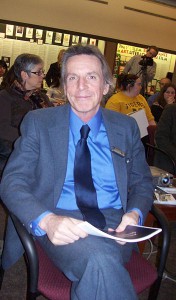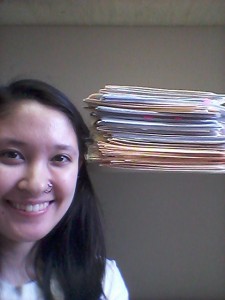This summer, I had the pleasure of working with Professor Amodio on editing papers for a collection of essays in memory of John Miles Foley, a titan in the study of oral tradition and a great friend to the contributing scholars. Foley was instrumental to the study of oral tradition, or the transmission of stories, histories, genealogies, etc., through not only his impressive corpus of books and articles, but also through his founding of the Oral Tradition journal, making access to scholarly articles on the subject possible to readers all around the world.
The concept of an oral tradition is especially important to keep in mind when considering texts that were originally composed orally, so that the texts can be considered in the original context in which they were created and performed. This extends to any orally-composed text, whether it is an Anglo-Saxon epic, like Beowulf, a Kirghiz epic, or a Nigerian oral poem composed in honor of a political election, spanning multiple historical periods, cultures, and geographical borders. Placing a text back into its performative context helps bring the text to life for the reader in a way that the written text often is not able to fully convey.
Thus, the core of my work this summer was to read through the essays sent in by scholars, each one detailing Foley’s study of orality as it relates to their specific field of study. Our editing process consisted of going through each essay multiple times, each time taking care to make sure that the version conformed to the proper citation style and ensuring that the necessary changes were inserted. After we had both gone through an essay enough times (which could be anywhere from three to six times) that it became sufficiently polished, the essay was sent off to its author for approval, along with any questions we may have had concerning the text, and was only then considered ready for the next phase of editing.
Aside from copy-editing essays, I also helped with preparing other details necessary to producing a completed book, like writing short summaries of the essays for the front piece, securing the rights to reproduced images, working on the logistics of incorporating an audio component into a book, and communicating with the various contributors to get feedback on our edits and smooth out any textual uncertainties.
I have learned a considerable amount this summer, not only about editing a book, but also about oral tradition and its application to texts as a means of preserving the performative context that is lost when a text is written down. Oral tradition is alive and well today, and I am glad to have been able to help with the book dedicated to honoring Foley’s memory as a scholar and friend to all of the authors involved.


